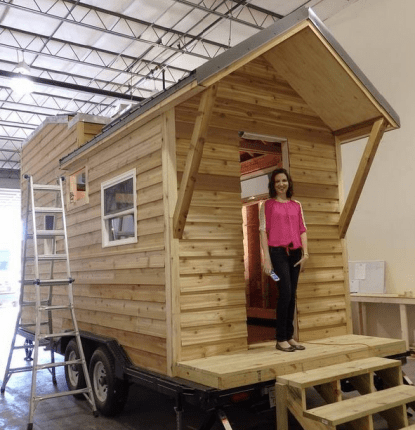
At issue is a regulation differentiating camping RVs from manufactured homes (MH).The construction of MH is under federal guidelines , while the regulations governing the building of RVs conforms to industry standards. Until now, anything smaller than 400 square feet could not be considered a home and therefore did not have to adhere to HUD standards, which MH does. Tiny homes have thus been exempt from HUD oversight.
The problem stems from some RVs being marketed as year-round homes, and travel trailers can open up with side walls and become larger than 400 sq. ft. If they are considered homes, should they be compliant with HUD Code regulations covering MH? The RV industry is not interested in being under HUD rules.
The proposed regulation would make the distinction between camping and a permanent residence, and require that stickers be placed on the unit identifying it as only for recreational use, not as a permanent residence.
While HUD will maintain its exemption of tiny homes because they are under 400 sq. ft., tiny homeowners are concerned a sticker on their home identifying it as a recreation vehicle could keep the home from being sited in a manufactured home community (MHC), or elsewhere, making them outcasts and lawbreakers, even on their own property.
However, Matt Wald, an executive with the Recreation Vehicle Industry Association (RVIA), said, “Use and what you can do with it is regulated at the state and local level, not by HUD.” It is about local zoning.
Dan Louche, founder of Florida’s Tiny Home Builders, agrees that the new rule will have little effect on those living in tiny homes. “There are thousands of people living in tiny houses, but the reality is that in the vast majority of cases in the United States, they are considered illegal,” he said. ##
(Photo credit: charlotteobserver/Jennifer Baxter–Tiny Home)


























